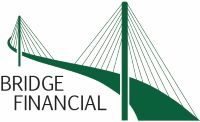
What Does the Changing Pension Landscape Mean for Retirement?
John F. Kennedy once said, “Change is the law of life. And those who look only to the past or present are certain to miss the future.” This is certainly true of preparing for retirement. If we continue to expect that the ways of the past will see us through to our futures, we will be left behind. The methods that helped prepare us for retirement are quickly disappearing, and we must start using others.
Companies are rewriting the retirement rules for working Americans. Traditional pension plans, which gained prominence in the 20th century, are rapidly disappearing because of the high costs involved in funding them. Some corporations have underfunded or at-risk plans.
To help protect employees with corporate pensions, the federal government enacted laws requiring employers to meet a 100% funding target for their defined-benefit plans. Companies that sponsor pension plans are also required to pay higher insurance premiums to the Pension Benefit Guaranty Corporation (PBGC), which was created by Congress in 1974 to help protect American workers from the risk of pension default. Premiums have increased because the PBGC itself is facing a deficit as a result of more companies defaulting on their pension plans.
Because of these costly requirements, it is becoming less and less attractive for companies to provide traditional pensions to retirees. Employers with underfunded plans may simply choose to eliminate them, and even companies with healthy plans may decide that defined-benefit plans are not worth the cost. As a result, it is likely that more companies will offer defined-contribution plans like the 401(k) to attract new employees and to help employees fund their own retirements.
Thus, it is important to be aware that you may have less help from your employer and will probably have to rely more on your own savings and investments to fund your retirement.
The government has tried to help by raising contribution limits to most employer-sponsored retirement plans. You can contribute money to these plans on a pre-tax basis. Your contributions and any earnings accumulate on a tax-deferred basis. Of course, remember that distributions from most employer-sponsored retirement plans are taxed as ordinary income and, if taken prior to reaching age 59½, may be subject to an additional 10% federal tax penalty.
The SECURE 2.0 Act, signed into law in December 2022, included an automatic enrollment provision for workplace retirement plans. It mandated that beginning January 1, 2025, employers must enroll eligible employees automatically into any new 401(k) and 403(b) workplace retirement plan established after SECURE 2.0 became law, unless an exception applies. Employees may opt out of participation.
Prior to SECURE 2.0, some companies took steps to help workers fund retirement by instituting automatic enrollment in their defined-contribution plans to encourage more employees to participate. Some enhanced the benefits of their plans by increasing the amount they contribute to employee accounts and/or enhancing matching contributions.
Many companies that still have traditional pension plans should be able to pay their promised benefits. But in light of recent trends, it would be wise to consider all possible sources of retirement income when reviewing your retirement strategy. With the changing retirement landscape, there may be no better time than now to size up your current situation. Your company-sponsored retirement plan will be just one piece of your retirement funding pie.
The information in this newsletter is not intended as tax, legal, investment, or retirement advice or recommendations, and it may not be relied on for the purpose of avoiding any federal tax penalties. You are encouraged to seek guidance from an independent tax or legal professional. The content is derived from sources believed to be accurate. Neither the information presented nor any opinion expressed constitutes a solicitation for the purchase or sale of any security. This material was written and prepared by Broadridge Advisor Solutions. © 2025 Broadridge Financial Solutions, Inc.




